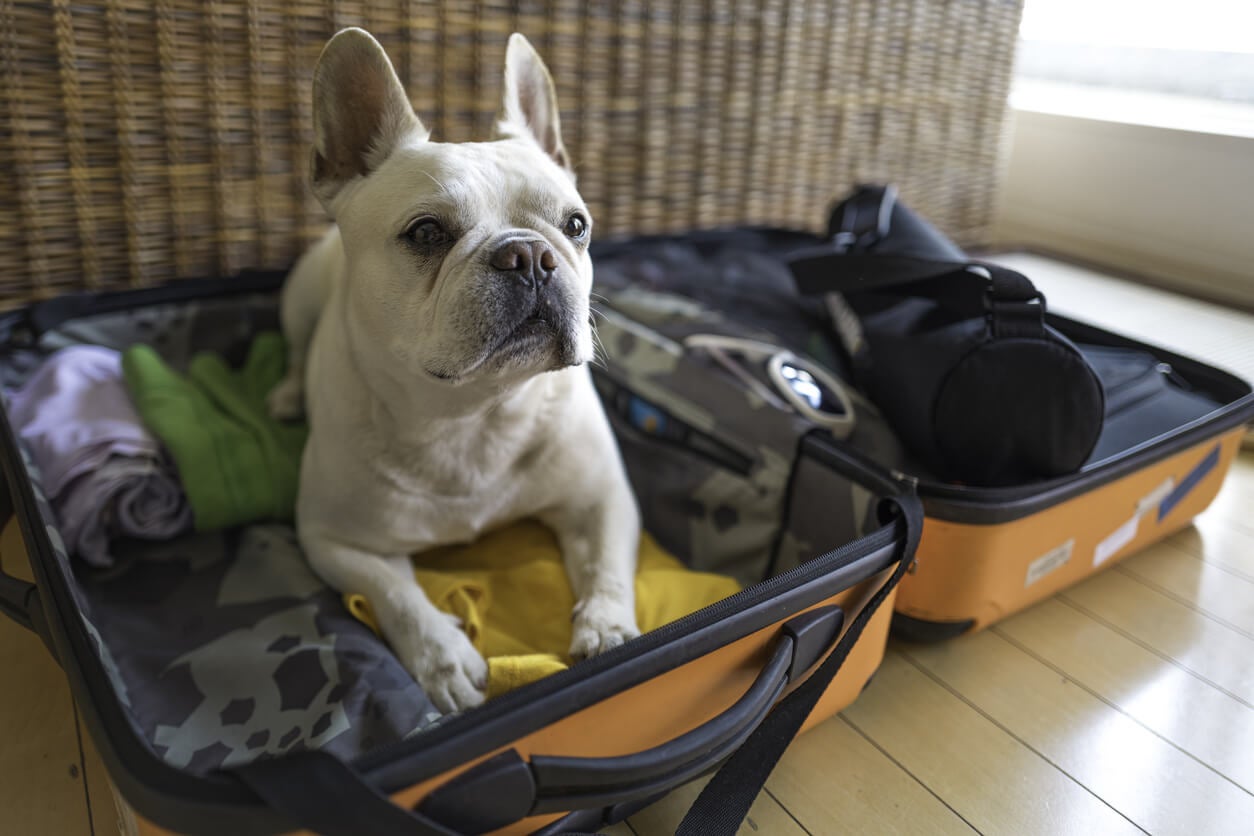
The holidays are fast approaching, and you may be thinking of taking your pet on a trip with you — whether that be by plane, car, bus or another mode of transportation. The holidays are a time to sit back, unwind and enjoy quality time with friends and family. Traveling should be no different. To ensure comfort and safety, we’ve put together some pet travel tips you can use for your next trip.
Tips For Traveling With Pets By Car
Before taking your pet on any trip, you must prepare them for what is to come. For dogs, cats, or any other pet that may require a carrier, try getting them accustomed to riding in the crate first. You can take them for trips around the neighborhood or take back roads so you can pull over or slow down if you sense your pet is getting uncomfortable.
It’s crucial to allow your pet to associate travel with safety. Try giving them treats while in the car or vehicle. Other tips to keep you and your pets calm and comfortable include:
- Secure your cat or dog in a crate using a seat belt. Restraints or seat belts may work better for your dog than a crate. Either way, make sure your pet is anchored to the vehicle so you can focus on the road.
- Keep your pet in the back seat to prevent any injury that can be caused by airbags.
- Plan out food, water and bathroom breaks for your pet. Plan to stop every few hours to take care of your pet’s needs.
Tips For Taking Pets On An Airplane
Air travel can pose a risk to animals with brachycephalic faces, as they have short nasal passages. Heatstroke and breathing problems may pose a safety threat to these pets. If you decide you must take your pet on a plane, be sure to follow these tips:
- Just like in a car, food, water and potty breaks are essential to your pet’s well-being. Plan these breaks during layovers or make sure they are taken care of before you board the plane.
- Call your airline in advance and ask if you can take your pet in the cabin with you. Some companies may help you plan out the process of flying with a pet. Ask your airline if they require pet immunizations, if they require you to use a specific type of carrier or if they have any restrictions regarding transporting your pet in the cargo hold.
General Things To Do Or To Avoid When Traveling With Pets
When traveling with any pet, make sure you bring along any health certificates or vaccine records. These are especially important when crossing state lines or traveling internationally. Have an AAHA-accredited vet — like University Animal Clinic — sign your paperwork. Be sure to:
- Never leave your pet alone inside your vehicle. When it’s 72 degrees Fahrenheit outside, the temperature in your car can reach 116 degrees in just an hour — heat is a serious hazard.
- Make sure your pet keeps their head inside the vehicle. Pets that stick their heads out the window may become sick due to exposure to cold air or injured by debris. Transporting your pet in the back of an open pickup truck is a huge no-no.
- Steer clear of substances that will lower your pet’s heart rate or blood pressure, like sedation. Instead, use pheromone supplements, chews that have milk proteins or tryptophans for helping to relax your pet, or b vitamins.

Advantages Of Taking Your Pet With You When You Travel
Taking your pet with you on vacation or any other trip can be a rewarding experience. You can make sure they’re safe, and you don’t have to miss them. Pets can partake in the adventure with you, which can be an excellent time for bonding and memories that can last a lifetime.
Contact Us Today
It’s important to plan ahead when planning a trip with your pet. Safety and comfort are essential for calm yet exciting travel. If you are planning to travel with your pet and have any concerns or questions, don’t hesitate to call us at (941) 253-5218. You can also schedule an appointment online and one we’ll be more than happy to assist you.
